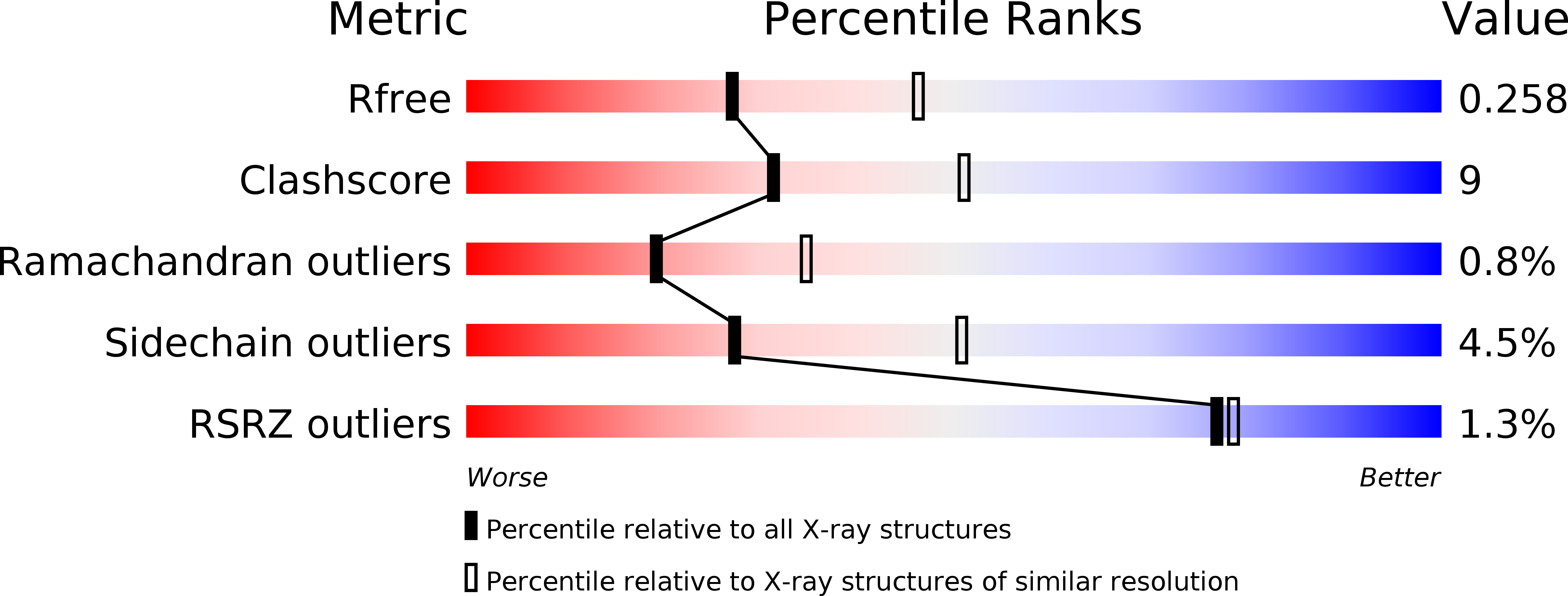
Deposition Date
2014-09-09
Release Date
2014-12-10
Last Version Date
2024-11-06
Entry Detail
PDB ID:
4RA6
Keywords:
Title:
Crystal structure of linker less Pyrococcus furiosus L-asparaginase
Biological Source:
Source Organism(s):
Pyrococcus furiosus DSM 3638 (Taxon ID: 186497)
Expression System(s):
Method Details:
Experimental Method:
Resolution:
2.50 Å
R-Value Free:
0.26
R-Value Work:
0.19
R-Value Observed:
0.19
Space Group:
P 41


